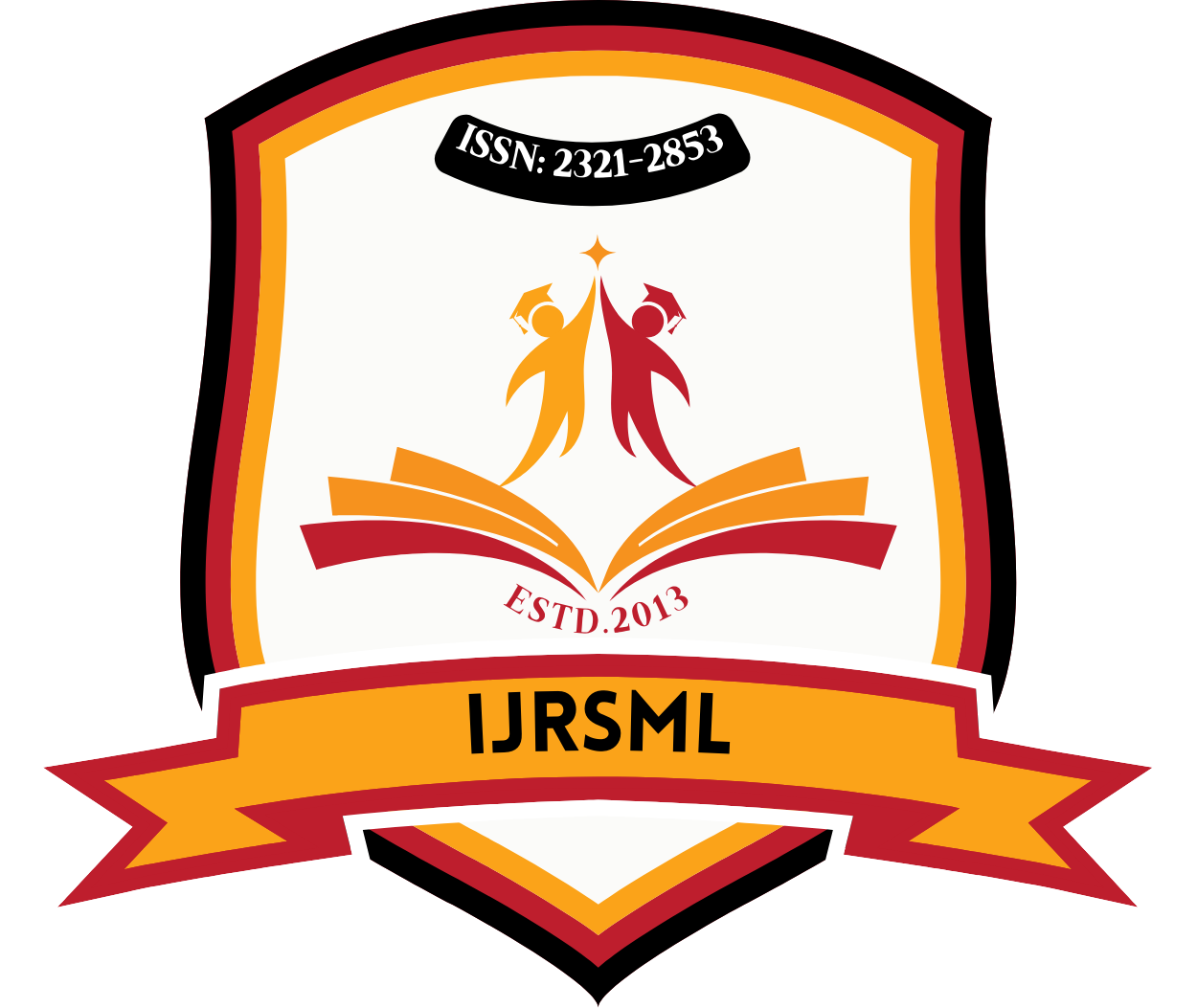![]()
DOI: https://doi.org/10.63345/ijrsml.v13.i7.1
Dr Alka Saini1, Dr. Alka Gaur2, Dr. Swati Prajapat3 & Dr Shubhra Chaturvedi4
1Assistant Professor, Dhanauri PG College
Dhanauri Haridwar, India
2Assistant Professor, Jigyasa University
Dehradun, India
3Assistant Professor
Jaipur school of Business, JECRC University
Jaipur, India
4Professor, Department of Teacher Education
J V Jain College
Saharanpur, India
Abstract
In an increasingly globalized academic environment, multilingual education has emerged as a vital pedagogical strategy, equipping learners with not just linguistic proficiency but enhanced cognitive flexibility. This study investigates how multilingual education influences the development of cognitive flexibility among university students. Cognitive flexibility, the mental ability to switch between thinking about different concepts and adapt behavior to new, unexpected situations, is considered essential in higher-order learning. Drawing upon cognitive psychology and educational linguistics, the research surveyed 200 university students enrolled in multilingual programs across disciplines. Results demonstrate a positive correlation between exposure to multiple languages and increased adaptability, problem-solving, and mental resilience. These findings highlight the value of multilingual curricula in shaping intellectually agile individuals prepared for complex global challenges.
Keywords
Multilingual education, cognitive flexibility, university students, language learning, neurocognition
References
- Adesope, O. O., Lavin, T., Thompson, T., & Ungerleider, C. (2010). A systematic review and meta‑analysis of the cognitive correlates of bilingualism. Review of Educational Research, 80(2), 207–245. https://doi.org/10.3102/0034654310368803 edu
- Baker, C. (2011). Foundations of bilingual education and bilingualism (5th ed.). Multilingual Matters.
- Barac, R., & Bialystok, E. (2012). Bilingual effects on cognitive and linguistic development: Role of language, cultural background, and education. Child Development, 83(2), 413–422. https://doi.org/10.1111/j.1467-8624.2011.01707.x
- Bialystok, E. (2017). Bilingual education for young children: Review of the effects and consequences. International Journal of Bilingual Education and Bilingualism, 20(6), 698–707. https://doi.org/10.1080/13670050.2015.1108736
- Bialystok, E., Craik, F. I. M., & Luk, G. (2008). Cognitive control and lexical access in younger and older bilinguals. Journal of Experimental Psychology: Learning, Memory, and Cognition, 34(4), 859–873. https://doi.org/10.1037/0278-7393.34.4.859 PubMed
- Costa, A., Hernández, M., & Sebastián‑Gallés, N. (2008). Bilingualism aids conflict resolution: Evidence from the ANT task. Cognition, 106(1), 59–86. https://doi.org/10.1016/j.cognition.2006.12.013 PubMed
- Cummins, J. (1979). Cognitive/academic language proficiency, linguistic interdependence, the optimum age question and some other matters. Working Papers on Bilingualism, 19, 121–129. SCIRP
- De Houwer, A. (2009). Bilingual first language acquisition. Multilingual Matters.
- Green, D. W., & Abutalebi, J. (2013). Language control in bilinguals: The adaptive control hypothesis. Journal of Cognitive Psychology, 25(5), 515–530. https://doi.org/10.1080/20445911.2013.796377 PMC
- Grosjean, F. (2010). Bilingual: Life and reality. Harvard University Press.
- Government of India, Ministry of Education. (2020). National Education Policy 2020. https://www.education.gov.in
- Kroll, J. F., & Bialystok, E. (2013). Understanding the consequences of bilingualism for language processing and cognition. Journal of Cognitive Psychology, 25(5), 497–514. https://doi.org/10.1080/20445911.2013.799170
- Marian, V., & Shook, A. (2012). The cognitive benefits of being bilingual. Cerebrum, 2012, Article 13.
- Martin, M. M., & Rubin, R. B. (1995). A new measure of cognitive flexibility. Psychological Reports, 76(2), 623–626. https://doi.org/10.2466/pr0.1995.76.2.623 ResearchGate
- Mohanty, A. K., Misra, M. K., Reddy, N. U., & Ramesh, G. (2009). Overcoming the language barrier for tribal children: Multilingual education in Andhra Pradesh and Orissa, India. In A. K. Mohanty, M. Panda, R. Phillipson, & T. Skutnabb‑Kangas (Eds.), Multilingual education for social justice: Globalizing the local (pp. 278–291). Orient BlackSwan. org
- Paap, K. R., & Greenberg, Z. I. (2013). There is no coherent evidence for a bilingual advantage in executive processing. Cognitive Psychology, 66(2), 232–258. https://doi.org/10.1016/j.cogpsych.2012.12.002 PubMed
- Surrain, S., & Luk, G. (2019). Describing bilinguals: A systematic review of labels and descriptions used in the literature between 2005–2015. Bilingualism: Language and Cognition, 22(2), 401–415. https://doi.org/10.1017/S1366728917000682
- Thomas, W. P., & Collier, V. P. (2002). A national study of school effectiveness for language minority students’ long‑term academic achievement. Center for Research on Education, Diversity & Excellence.
- (2022). Global education monitoring report: Inclusion and education—All means all. UNESCO Publishing.
- Vygotsky, L. S. (1978). Mind in society: The development of higher psychological processes. Harvard University Press.
